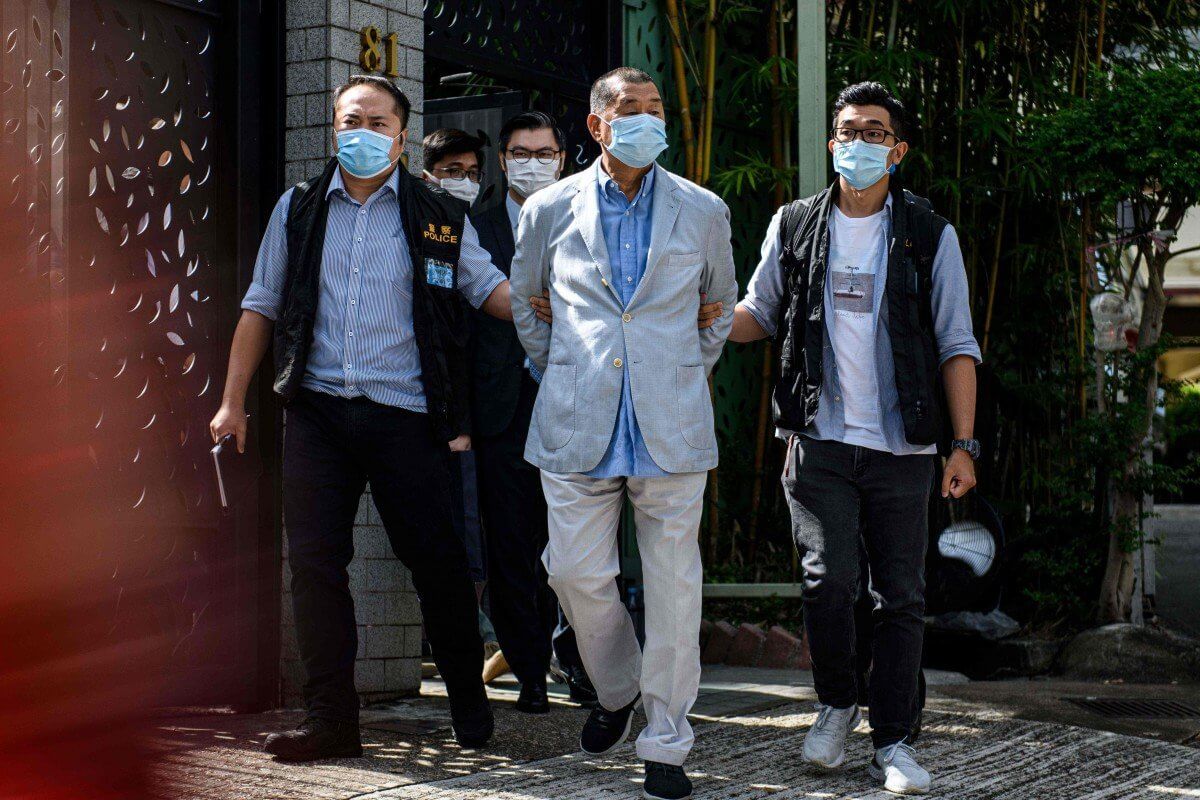Hong Kong entrepreneur and activist Jimmy Lai, along with nine other pro-democracy advocates, including veteran campaigner Albert Ho and former lawmaker Lee Cheuk-yan, are set to plead guilty in a trial that begins today, to charges of organising and attending an unauthorised assembly on October 1, 2019. While representatives for Lai could not be reached for comment by the media, Ho confirmed the news in a brief interview on Sunday.
On late Friday, Hong Kong authorities froze some of the businessman’s assets, citing the Beijing-imposed national security law. Secretary for Security John Lee also issued notices to freeze all shares of his Next Digital Ltd. media company, along with the local bank accounts of three other companies owned by Lai. This is a significant move because this is the first time that Hong Kong’s local authorities have used the draconian security law to freeze the shares of a major investor in a listed company.
Last April, the 72-year-old media tycoon, who is the founder of the anti-establishment newspaper Apple Daily, was arrested at his home and sentenced to 14 months in prison. Several others were also arrested, including former lawmakers Martin Lee, Margaret Ng, Albert Ho, Leung Kwok-hung, Au Nok-hin, and Leung Yiu-Chung. According to the police, they were all accused of organising and taking part in unlawful assemblies in August and October 2019.
This is not the first time Lai has pleaded guilty for participating in pro-democracy activities. He was convicted in two separate trials for unauthorised assemblies on Aug 18 and Aug 31, 2019, respectively wherein he received a 15-month sentence for the first, reduced by three months in mitigation, and an eight-month sentence for the second, of which he served two.
The activist’s repeated arrests have drawn condemnation from Western governments and international rights groups, who raised concerns over waning freedoms in the global financial hub, including freedom of speech and assembly. “The wrongful prosecution, conviction and sentencing of these activists underlines the ... government’s intention to eliminate all political opposition,” Amnesty International’s Asia-Pacific regional director Yamini Mishra said last month following the sentencing of 10 Hong Kong pro-democracy activists.
The crackdown by Beijing has only continued to increase since October 2019, when thousands of protesters took to the streets in at least a dozen districts across the former British colony, building barricades, setting fires, and throwing petrol bombs and rocks at police, who responded with baton charges and tear gas.
Following the rallies, China intensified its hold on Hong Kong, most notably through the imposition of the national security law in June 2020, which punishes anything that China considers subversion, secessionism, terrorism, or collusion with foreign forces with harsh penalties, including life in prison. Following this, China’s National People’s Congress Standing Committee approved a resolution that gave Hong Kong’s local authorities the power to bypass local courts and instantaneously remove politicians viewed as a threat to national security. Consequently, four Hong Kong lawmakers who have so far supported the territory’s pro-democracy movement were immediately unseated. The same assembly members had previously been banned from running for re-election, as authorities deemed that their pledge of allegiance to Hong Kong was not earnest. In response, the opposition lawmakers resigned from the committee en masse last November.
More recently, Beijing approved a package of sweeping legislative changes to Hong Kong’s electoral system, which include a reduction in the number of democratically elected seats in the legislature and the establishment of a vetting committee to pre-approve potential candidates. The move further shuts out pro-democracy forces from the semi-autonomous territory’s legislature.
Hong Kong Pro-Democracy Activist Jimmy Lai to Plead Guilty in Protests Case
Ten pro-democracy activists in Hong Kong, including entrepreneur Jimmy Lai, will plead guilty in a trial on their involvement in protests in October 2019.
May 17, 2021

SOURCE: AFP
